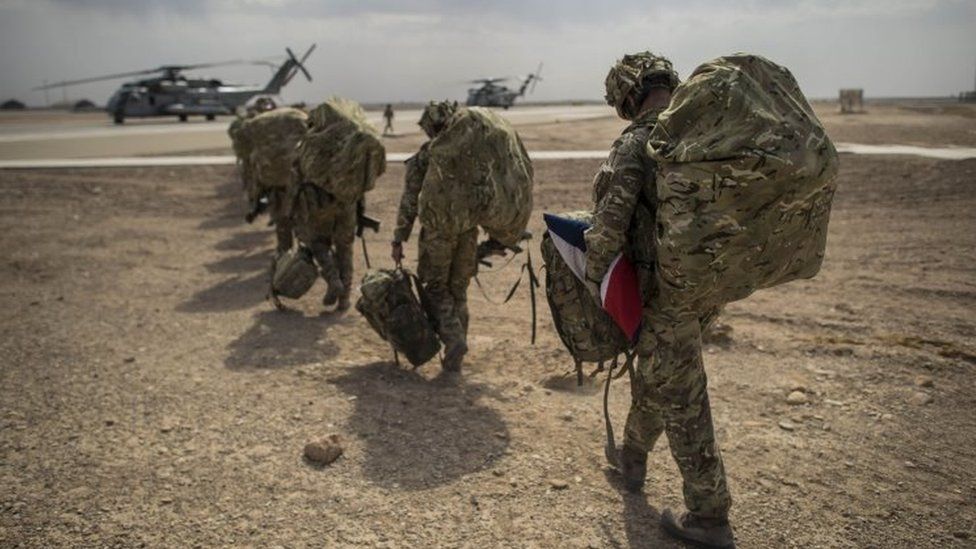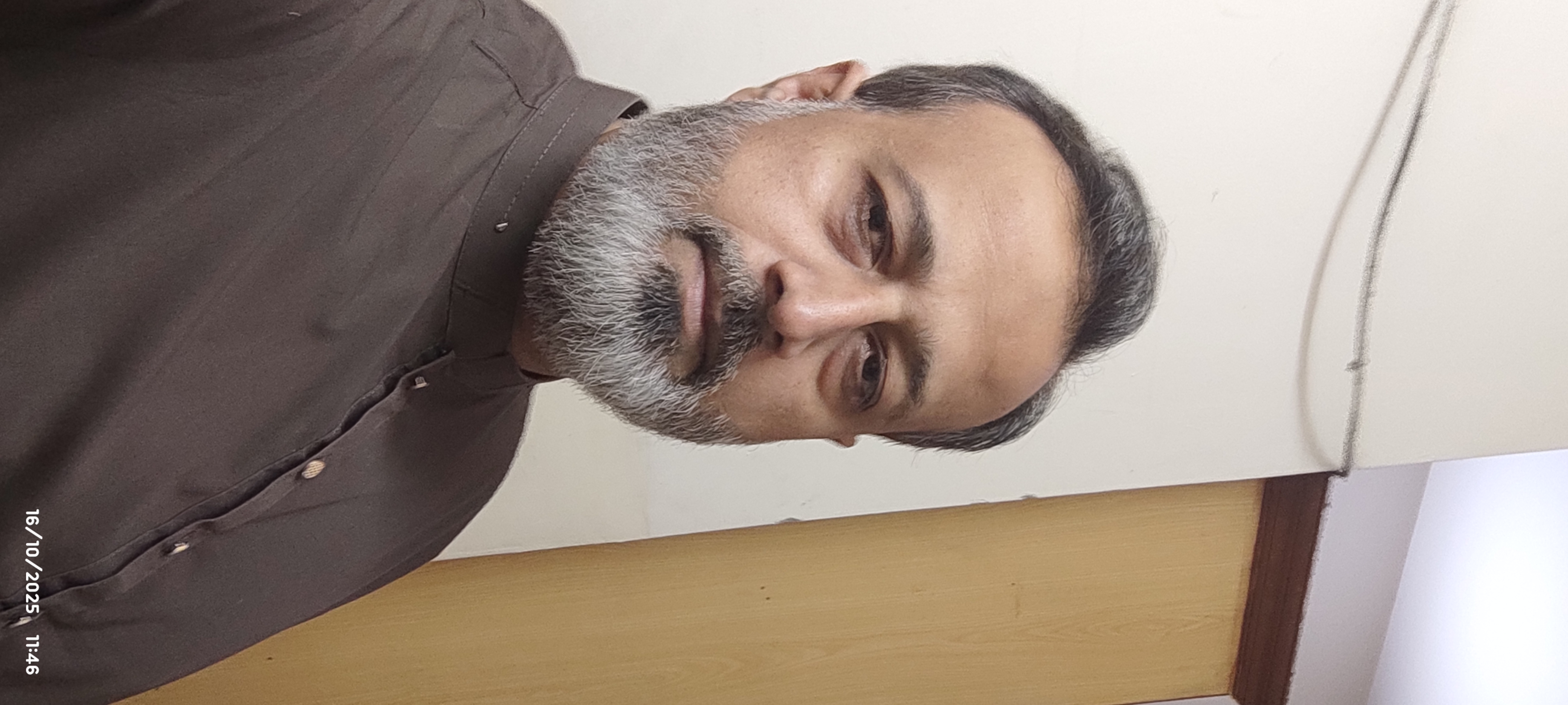In today’s world, wars are no longer fought solely on the battlefield — the real battle is now waged through narratives, media, and messaging. Defeating the enemy on the television screen has, in many cases, become more important than defeating them on the frontlines.
Where swords and catapults were once employed, today’s weapons are sharp headlines, fiery speeches, and viral video clips. A single statement, a broadcast, or a trending reel now serves as the ammunition of this era.
"This war of words often buries the truth — and at times, crowns a lie as victory."
In today’s reality, the true conflict lies not between armies, but between facts and perception. That is why it is essential not just to listen to what is being said — but to ask: Who is saying it? Why are they saying it? And who benefits from it?
History has shown that when a nation faces defeat, it seldom acknowledges it openly.
Instead, a new narrative is quickly crafted:
“We inflicted heavy losses on the enemy.”
“We
crushed their ambitions.”
“Our brave forces deserve our salute.”
“We are a proud
and
sovereign nation.”
While such rhetoric may offer emotional relief in the short term, it blinds the public to reality — and this fog of self-delusion obscures the light of truth.
So, why does this happen?
Why do defeated powers hesitate to accept defeat?
There are three primary psychological and strategic reasons:
1. National Pride and Public Morale
Admitting defeat is not just a military event — it's a psychological blow. It's feared that acknowledging loss could demoralize the public, undermine national confidence, and damage the credibility of institutions. To prevent this, leaders often rely on patriotic slogans and tales of heroism to keep the nation reassured.
2. Political and Diplomatic Constraints
On the international stage, admitting defeat can give adversaries diplomatic leverage. Appearing weak before the UN, allies, or the global community can impact future negotiations, strategic partnerships, and economic ties. This is why ceasefires are often rebranded as tactical retreats or "honorable withdrawals."
3. Control Over Historical Narrative
States understand that history is not just a record of what happened — it's a competition of narratives. The version taught in textbooks, echoed by the media, and repeated in speeches becomes the accepted "truth." The aim is simple: future generations must not question authority — they must admire it.
And so the question remains:
Do ordinary people accept false narratives without ever knowing the real truth?
Is history just a collection of manipulated myths?
Absolutely not.
History is the greatest judge. It may delay its verdict — but it never withholds it. And the truth, no matter how deeply buried, eventually rises to the surface.
If you want proof, look to the aftermath of wars.
Truth is often silenced in the heat of battle, buried beneath propaganda and
noise.
But as time passes and tempers cool, a new generation begins to ask:
What really happened?
Investigative commissions publish their reports.
Suppressed documents come to light.
And slowly, the layers of deception are peeled away.
There is no doubt — history is the ultimate judge.
It may be slow, but it is always certain.
Historical Case Studies: When Defeated Powers Refused to Admit Defeat
In this part of my article, I find it necessary to mention some major wars in which the defeated side, despite suffering loss, refused to acknowledge its defeat — and continued to present a narrative of dominance before the world.

The American Debacle in Afghanistan
The United States’ two-decade-long war in Afghanistan — initially termed the “War on Terror” — came to an end on August 15, 2021, when the Taliban once again captured Kabul and President Ashraf Ghani fled the country. The Taliban took over Kabul without resistance. The Afghan National Army, on which over $83 billion had been spent, disbanded without a fight. Millions of Afghan citizens tried to flee at the airports, and the U.S. was forced to withdraw its military in haste under the guise of “negotiations” with the Taliban. This was called a “mission accomplished,” whereas in truth, it was a clear defeat. History has recorded it as one of the greatest failures of the world’s most powerful military force.
After “Saigon 1975,” the Afghanistan episode stands as another major humiliation for the United States — where a superpower, despite a 20-year presence, trillions in investment, and thousands of lives lost, failed to achieve its objectives. And when the same enemy they had come to eliminate returned to power upon their departure, what else can that be called if not a defeat?
Similarly, in 1975, the United States suffered a clear military and moral defeat in Vietnam.
Yet the American media and official narrative continued to portray it as a “moral victory”
and a “strategic retreat.” This narrative provided temporary comfort to the public, but the
truth could not remain hidden for long. Soldiers’ memoirs, declassified reports, and
Hollywood films gradually revealed the actual face of the war.
This denial prevented the U.S. not only from facing the truth but also from equipping its
army and future generations with new strategies and necessary reforms.
Because when defeat is not even acknowledged, then no lessons can be taught — and none can
be learned.
Thus, the denial of defeat becomes the foundation of the next defeat — as witnessed in the
U.S. war in Afghanistan.
In 1989, the Soviet forces labeled their exit from Afghanistan as a “dignified withdrawal.” But in reality, it was a military, economic, and moral failure — one that was never admitted. This led to internal disintegration and a crisis of public confidence. A few years later, in 1991, the Soviet Union fell apart. Historians believe that the defeat in Afghanistan — and the refusal to recognize that defeat — marked the beginning of that collapse.
In 1971, after East Pakistan became Bangladesh, the Pakistani state for years avoided officially
acknowledging the incident.
Instead of admitting to a military defeat, educational curricula, media, and state statements
continued to frame the event as a “foreign conspiracy.”
If it weren’t for the efforts of historian Mubarak Ali, journalist Hamid Mir, and a few other
voices of conscience who drew national attention to the fact that the separation of East
Pakistan, though a tragedy, was compounded by the state’s refusal to recognize it — the
situation might have remained unchanged.
Under public pressure, the government eventually formed a commission led by Justice Hamoodur
Rahman to investigate the causes of the Dhaka debacle.
After many years, the commission’s report was made public.
The language, observations, and conclusions of the Hamoodur Rahman Commission Report clearly
indicate that the 1971 tragedy was a major military, political, and moral failure — caused by
flawed military strategies, corruption among officers, and a disregard for the public’s
will.
This report openly addresses the reasons behind our defeat.
Leadership and Defeat: A Historical Reflection on Acceptance vs Denial
Napoleon was a great military general who hoisted the flag of conquest across Europe and changed the course of history through his strategic brilliance. But after his final defeat at the Battle of Waterloo, he never openly accepted his loss. He continued to attribute it to fate, betrayal, or the failures of others. This denial clouded the grandeur of his legacy. Had he accepted defeat with dignity, he would not only be remembered as a conqueror but also as a noble loser. Today, history remembers him as a brilliant tactician and a military genius, but his refusal to accept his final defeat prevented him from being seen as a truly complete leader.
However, not all political leaders and military generals resort to falsehood after losing a war. History also bears witness to those individuals who, instead of hiding behind temporary lies, chose to speak the truth to their people.
Those political leaders or military commanders who accepted defeat and told their nation the truth may have initially faced criticism, but they ultimately earned respect and dignity in history — and it is often such nations that progress, guided by leaders and generals of high moral character.
Many military generals and public figures in history have bravely accepted defeat, and it is this honesty that elevated their stature and public respect. In World War II, France suffered defeat at the hands of Nazi Germany, but General Charles de Gaulle not only acknowledged this defeat, he reorganized the nation and led the resistance movement. In time, he became the President of France and was honored as a national hero.
German General Erwin Rommel, known as “The Desert Fox,” is remembered not only for his military genius but also for his moral courage. During World War II, when he lost the Battle of El Alamein in North Africa, he openly admitted defeat and executed an organized retreat to protect his forces — a remarkable example of realism and leadership. Later, due to his disagreement with Hitler’s policies, he was forced to commit suicide by poison. Rommel was so popular and respected that punishing him publicly could have triggered a rebellion among the German people. Today, Rommel is remembered as a general who not only achieved great victories but also accepted defeat with honor.
When the Ottoman Empire collapsed after World War I, Turkey recognized this bitter truth and
decided to abolish the Caliphate and build a modern, nationalist state.
Mustafa Kemal Atatürk, a capable and successful military general, formally ended the
Caliphate in 1924 and laid the foundation for a secular, modern, and Western-aligned Turkey.
For him, the traditional religious leadership symbolized a defeated mindset that was the
root cause of national decline.
Atatürk accepted the defeat with courage and taught his nation that there was no shame in
admitting failure — accept defeat, and the next victory is surely yours; the future is
yours.
He gave his people a new intellectual, political, and national identity. While the state
accepted the defeat and initiated reforms, religious and public segments continued to view
this transformation as a deep wound for many years.
It can thus be said that under Atatürk’s leadership, Turkey embraced defeat and rebuilt
itself — but on a cultural and emotional level, much of the Muslim world and religious
scholars still struggle to fully accept the end of the Caliphate.
During the American Civil War, General Robert E. Lee of the southern states accepted defeat in 1865 and halted the war to avoid further bloodshed — his conduct is still seen with respect, as he did not let his ego interfere with the peace process.
Japanese Admiral Yamamoto, after the attack on Pearl Harbor, said: “We have awakened a sleeping giant.” He knew that winning a war against the United States would not be possible, and his words were a sign of his foresight and awareness of defeat. Though he followed Japan’s military strategy and played a central role in the Pearl Harbor attack, he clearly predicted: “We have awakened a sleeping giant.” He knew this war would not end in Japan’s favor. He died in the same war, but to this day, he is remembered in Japan as a dignified and loyal soldier.
At the end of this article, I must emphasize: Admitting defeat is not a sign of weakness — it is a symbol of wisdom, courage, and reform. If India truly claims to be a great democracy, it must offer clear explanations about its human, financial, and military losses reported by Pakistan and the global media — and present the truth honestly to its people. Only those nations progress that have the courage to confront reality.
In contrast, collective self-deception is a poison that not only destroys the present, but corrupts the minds, thoughts, and actions of future generations.
When a nation begins to collectively deny its failures, its people don’t just live in illusion — they slowly begin to accept delusion as truth. In psychology, this condition is called Collective Delusion — a fog in which the face of truth disappears, and the nation, forgetting its defeat, begins weaving dreams of self-made glory.
Remember:
Admitting mistakes is not a crime — it is a sign of insight.
But the nation that turns away from the truth lays the foundation for its own downfall.
4
















1 Comment
55 Views